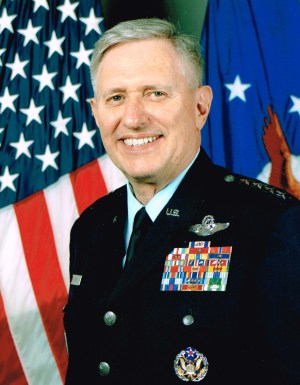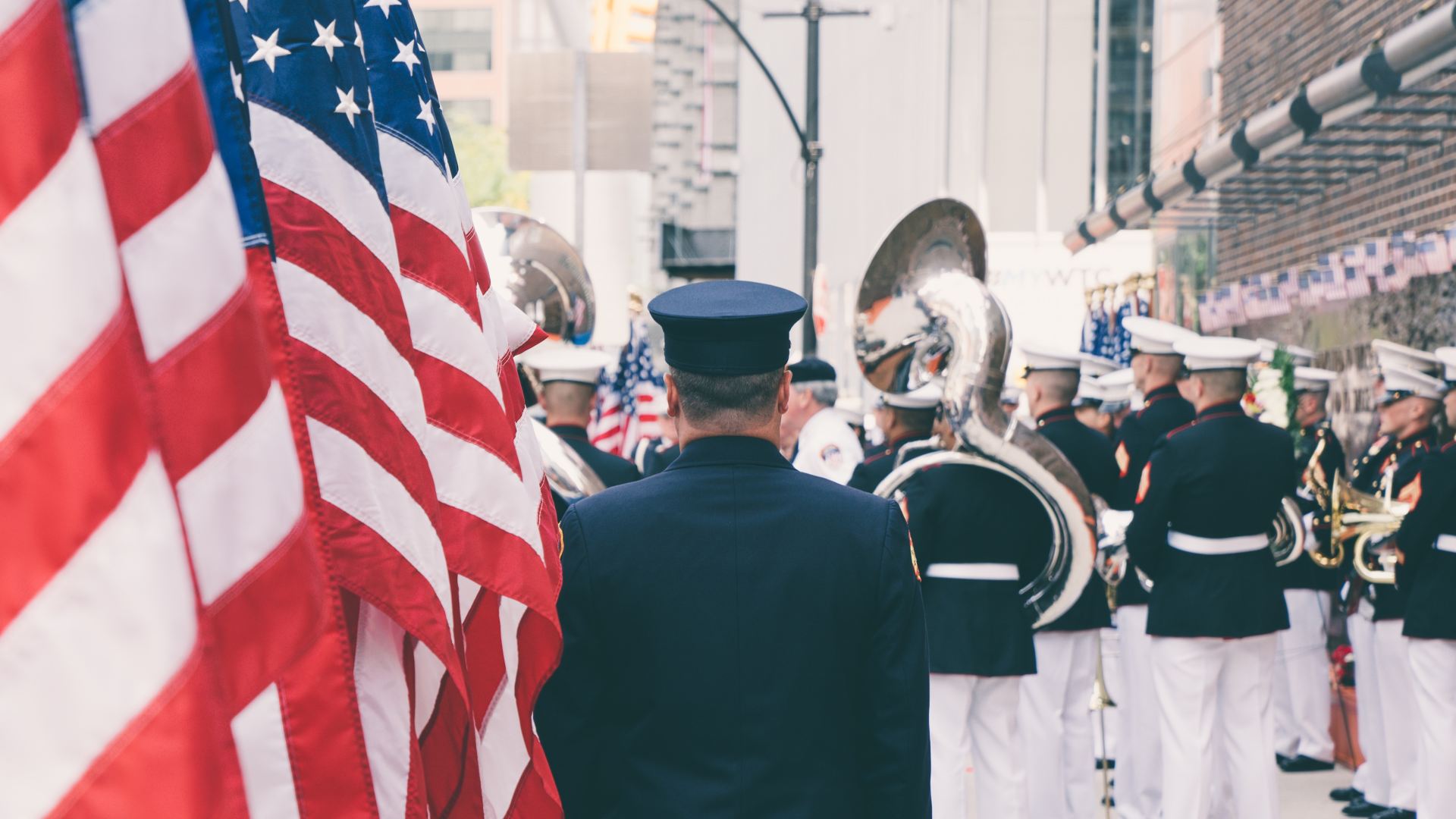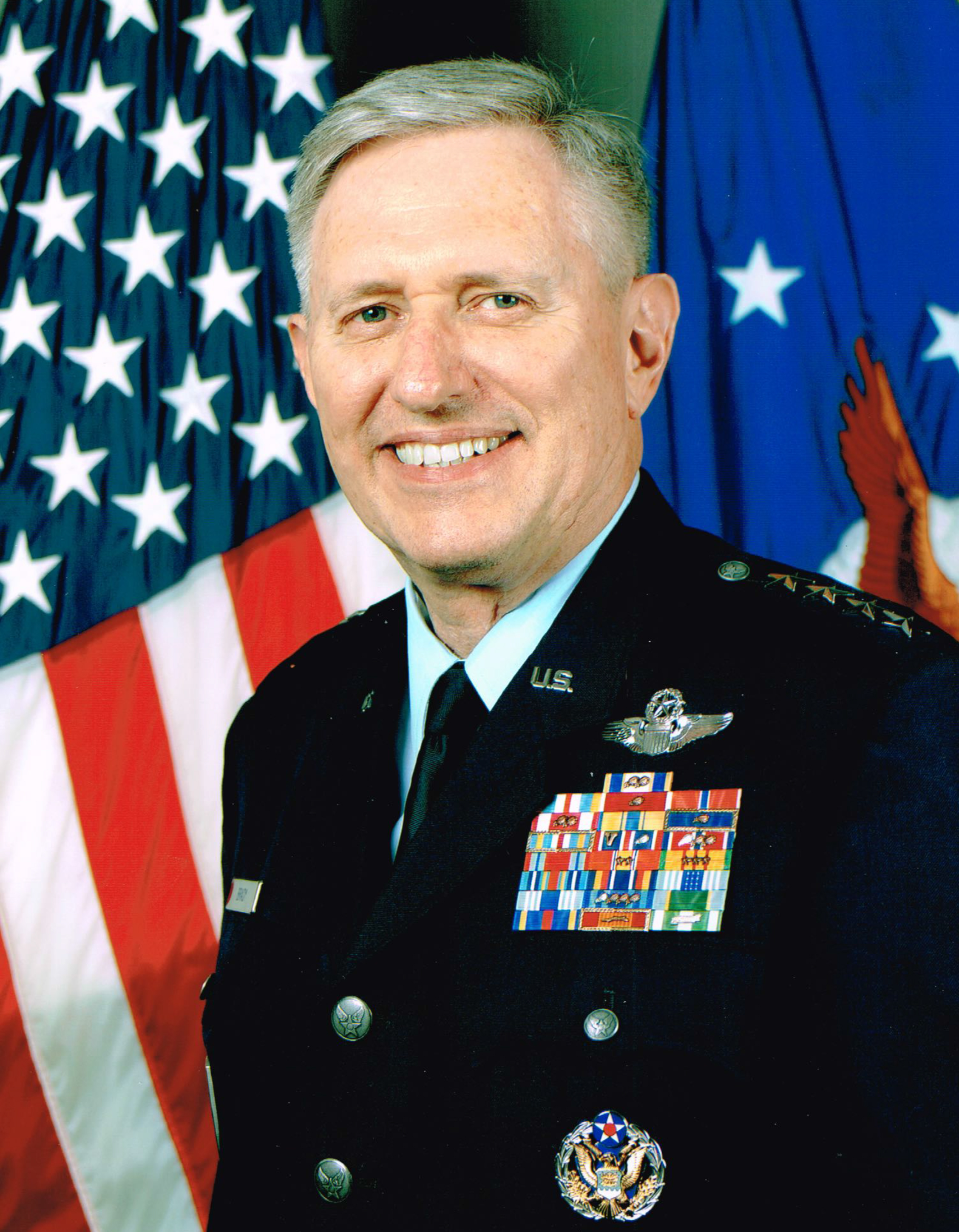The issue of religious tolerance has created challenging times for the United States military. All the service branches are trying to protect the rights of both those with religious beliefs and those with none. The choices made by military leaders exist in a pressure-packed environment framed by their oath of service, the Constitution, military guidelines, public opinion, and their own personal beliefs.
Recently, Brig. Gen. E. John Teichert, commander of Edwards Air Force Base in Southern California, became the focus of a Military Religious Freedom Foundation (MRFF) demand for an official investigation into his conduct, specifically a personal website that calls the nation to pray for itself and its future. The MRFF, led by former Air Force captain and activist attorney Michael L. (Mikey) Weinstein, alleges that Teichert is violating the Defense Department policy concerning religious proselytizing.
Retired Four-Star Gen. Roger A. Brady has had discussions with Weinstein regarding these kinds of religious issues and pressures. He was once the personnel director for all Air Force personnel, and he finished his 41 years of duty in 2011 as 33rd commander of all US Air Forces in Europe and led the joint NATO Allied Command from Ramstein, Germany. General Brady is a longtime Christian who now sits on the board of trustees for Mid-Atlantic Christian University and serves as the deacon over adult education at his local congregation of the Church of Christ.
Brady led the 2005 inquiry into whether religious intolerance and discrimination were occurring at the United States Air Force Academy. Brady’s team found no outright or intentional religious discrimination, although it did discover some overzealous evangelism and a lack of awareness of how it adversely affected some cadets.
In a recent interview, Gen. Brady recalled his experiences and offered his viewpoints on the challenging issues facing Christians in the military.
 Used by permission
Used by permissionIs there a conflict between the culture of the military and an officer who wants to live out his or her concept of Christian leadership in the military?
Sometimes people may assume that it’s harder to be a Christian in the military than in other occupations. With very few exceptions, I believe the opposite to be true. There’s not a natural rub between Christian leadership and the military.
Have you witnessed any discernible trends in military personnel becoming more—or less—faith-conscious over the decades of your career?
In some ways—and this is just my observation of people—I believe the generations coming behind me in the military may be more open and expressive about their faith than my generation was. But at the same time, the institution [of the military] itself is definitely becoming more nervous about expressions of faith.
Why is that?
I think there are a couple of reasons for this. First, there have been instances of Christians who abused their position in promoting their faith, though I think that may be exaggerated by the attention it gets when it occurs. The second is that we are in an era where many people want safe zones, and some feel unsafe where people hold a view different from their own. It’s very easy to be offended and, so the thinking goes, if someone offends me, surely the system must do something about that. All of this tends to make the situation a bit more difficult than it might have been in the past.
What do you think of the approach the military is taking regarding believers in the ranks who wonder about sharing their faith with others in the military?
I become concerned at times that some people seem to think there should be almost a “don’t ask, don’t tell” policy for Christians in the military. The government ended that policy with regard to gender orientation, but there are some who would like to apply it to people of faith, as in, “I don’t care if you’re a Christian, but don’t tell me about it.”
The question of witnessing to your faith comes up occasionally. Between peers, I frankly see no issue at all. Not everyone agrees with me on that, by the way. But I really do not care if peers have spirited discussions about faith. We argue about everything else that’s important in life and some things that are not very important. So why should we worry about that? Young people all over America argue about everything under the sun, and that’s part of what education is about. So why should Air Force Academy students who are elite people of all faiths and no particular faith not have the opportunity to figure out who they are and what they believe with their peers? It’s actually part of their development.
Those opposing views have surfaced in the rhetoric and actions of Mikey Weinstein, whom you have had discussions with, and Air Force Reserve Chaplain Capt. Sonny Hernandez. Weinstein argues against most forms of religious expression in the military, while the Air Force Times has noted that Hernandez has posted a blog saying Christian service members who support religious liberty serve the Constitution “and not Christ.” What are your thoughts on these views?
These individuals you mention represent the extremes. I believe there is a reasonable middle ground. Actually, I think the most effective witness is our example. Sometimes I remind people of the life of Saint Francis of Assisi as illustrative of one who personified Christ with his daily behavior. He’s thought to have said, “Preach the gospel at all times. When necessary, use words.” I think that’s pretty good guidance.
Why were you tapped to lead the Air Force Academy inquiry into religious discrimination, and what was that like for you personally as a Christian military officer?
All things “people” tended to get dumped into the inbox of the personnel guy. I was happy to do it, but there were some moments that were not fun at all. I had some very good but difficult conversations with people during the Air Force Academy investigation. Some of the best conversations I had were with the people who were the most concerned about religion. I had discussions with the head of the Anti-Defamation League. He was very concerned about it but a real gentleman. It was a very good and very respectful discussion.
And I found in discussions with the Air Force and with Congress that there were people who thought I was the wrong guy to be conducting the study—overly religious—and others who thought I was not nearly religious enough on that subject. So it was a stressful time but a really interesting time.
It was very enlightening to me to have that discussion with Congress. While I shared the faith of many in Congress who were Christians, I probably had the most respectful conversations with those who disagreed with me the most, including several members of the Jewish faith. They were very understanding of the needle I was trying to thread. The goal there was to keep the train on the track and between the ditches—preserve religious freedom while not running afoul of the “establishment clause.”
You have cited the need for respect as an aspect of religious discussions in the Air Force. What else is important there?
We do need to be respectful of each other. That includes being sure that people in positions of authority do not take advantage of their positions to impose their beliefs on people in a subordinate position. That’s where the Constitution and the First Amendment became part of the discussion—especially the [religious] “establishment” clause. There was concern that there would be people in positions of authority who could impose their belief. That is clearly inappropriate.
[But] it raises a question: Can a person in a higher position ever witness to a person in a lower position? That becomes more challenging. But I think it is absolutely appropriate for military leaders—and I have done this—to encourage people to talk to a chaplain or a minister if it’s his belief a chaplain can be helpful to them.
That may sound like I am dodging the issue, but that is sometimes the best advice one can give. If the individual is being suspected of—or under investigation in relation to—some inappropriate behavior, a commander who is a Christian could unwittingly lead the individual into disclosing information that the commander would have to act upon. So reference to a chaplain is sometimes to the benefit of everyone.
A person can speak to a chaplain in confidence. As a commander, as a Christian leader, you cannot guarantee them confidence. Speaking to the commander has the potential of compromising either of the parties in that discussion. So I wouldn’t say an officer could never witness, but I’m saying it’s fraught with potential complications.
Do Air Force guidelines on religious tolerance address proselytizing about faith?
When the Air Force wrote the instruction on religious tolerance, there’s a statement that commanders should be officially neutral on matters of religion. I remember making a comment at that meeting, “Gosh, I hope nobody ever thinks I’m neutral on the concept of religion.” I can be neutral in terms of the way I treat people, but the neutrality statement gave me pause—I do not want senior individuals to have to check their faith at the door. That can be tantamount to denying who you are. But when you’re drafting and getting policy approved, it rarely comes out worded exactly how you might prefer it.
Can an Air Force recruit expect to find an environment conducive to Christian values?
The military expects you to be truthful and diligent, respectful, trustworthy, and those are certainly not inconsistent with the Christian faith. So the military is a pretty comfortable fit in that regard.
I had some questions about it when I began. The military has changed a lot since I entered active duty. When I came into the Air Force in the late ’60s, it was a very effective fighting force, but the standards of behavior were not what they would become later. The military had a reputation for being kind of a hard-drinking, devil-may-care outfit with less scrutiny of personal lifestyles. But things would change dramatically.
The Vietnam experience and the years that followed it told us that we have problems with drugs, race relations, and, as more women came into the Air Force, gender discrimination as well. At the end of the war, I was not at all sure I would stay. I loved the work and I enjoyed the people I engaged with at work, but it was sometimes uncomfortable. I wasn’t a drinker, which was encouraged, and some units I was in seemed to ignore instances of inappropriate relationships that were widely known. In the ’80s that would change, and I became much more comfortable with the environment I was in.
Former President Jimmy Carter, himself a Christian who served as a naval officer, wrote in his book A Living Faith that he occasionally felt torn between his Christian beliefs and what his job required him to do. Have you experienced that also in your Air Force career?
I’ve thought a lot about that, and I have not been in a situation where I thought I had to do something that was clearly not sound biblically. That said, I did face a couple situations in which there were only two possible courses of action, each of which might understandably have been called into question.
As a very young intelligence officer in Vietnam, I was required to make a recommendation of whether we should conduct suppression bombing of an area in which there were both friendly and enemy forces. There had been reports of ground fire aimed at our aircraft, and the upcoming mission involved large, slow, unarmed aircraft flying very low through the area. So do you suppress enemy fire in advance and risk harming civilians, or do you withhold suppression and put your aircrews at risk? That dilemma taught me that there are some cases where the path of right and wrong is not always absolutely clear.
I’m often reminded that Jesus told his disciples—and us—that this would be a challenging life and that we should be as wise as serpents and as harmless as doves. He really expects us to be what he was: the solution, not the problem.










